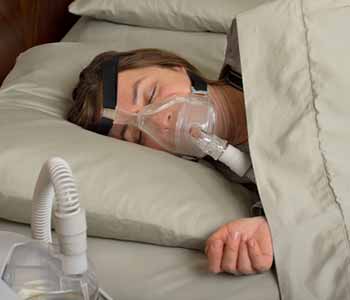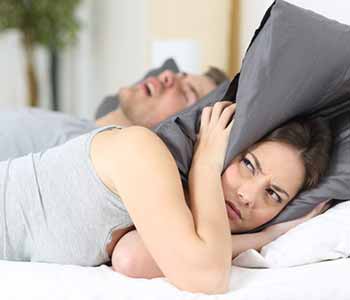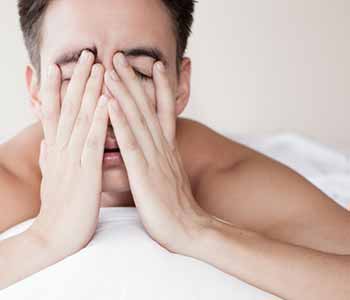Sleep apnea treatment in Turlock CA
Various treatment options are available for sleep apnea, which range from simple lifestyle changes like weight loss and change in sleep positions to surgical procedures and CPAP therapy. For advanced sleep apnea treatment in Turlock, CA, patients may visit experienced dentist, Dr. Ramsin Davoud.

Professional Treatment Options for Sleep Apnea
Continuous Positive Airway Pressure (CPAP)
CPAP is an effective treatment for moderate to severe sleep apnea. In this procedure, a machine delivers air pressure via a mask covering your nose during sleep. With CPAP, the air pressure is slightly greater than the pressure of the surrounding air and enough to make your upper airway passages stay open, which prevents apnea and snoring.
CPAP is a common and reliable procedure for treating sleep apnea. However, some people may find it uncomfortable and cumbersome. But, with some practice, many people obtain a comfortable, secure fit by adjusting the tension of the mask straps.
You may require trying different types of masks before you find a comfortable one. Some people also use a humidifier with the CPAP system. In case, you experience any problem or discomfort with your CPAP machine, consult with your doctor for any modifications to make it more comfortable for you.
Additionally, consult your dentist if you start snoring again or experience snoring despite treatment. In case your weight changes, you may need to reset the pressure settings of your CPAP machine.
RKD patients call us at (209) 690-8051 or
Schedule an Appointment
Alternative Airway Pressure Devices

If you find CPAP a little uncomfortable, you can use alternative airway pressure devices, which automatically adjust the air pressure during your sleep (Auto-CPAP). Additionally, you can use units which facilitate bilevel positive airway pressure (BiPAP). These devices supply more pressure during inhalation and less during exhalation.
Expiratory Positive Airway Pressure (EPAP)
These are small, single-use devices to keep over each nostril before going to sleep. The EPAP device is a valve which allows air to enter the nostrils freely, but during exhalation, air must pass through the small holes of the valve. The device keeps the nostrils open by increasing pressure in the airway.
EPAP device reduces snoring and daytime sleepiness in people with mild obstructive sleep apnea. Also, it serves as an effective treatment option for people who cannot tolerate CPAP.
Oral Appliances
You can wear an oral appliance to keep your throat open. Although CPAP is highly reliable and effective, oral appliances are easier to use. Certain oral appliances are designed to keep your throat open by moving your jaw forward. This can help in relieving snoring as well as mild obstructive sleep apnea.
Your dentist may offer you a number of devices for treating sleep apnea. You may require trying different devices before you find the one that works best for you. Even after you find the right device, do not forget to follow up with the dentist. You should visit the dentist frequently during the first year. After that, you can have a regular visit to ensure the device fits perfectly and reassess your signs of sleep apnea.
Healthy Lifestyle Changes

In many cases, self-care can effectively help in dealing with obstructive sleep apnea as well as central sleep apnea. Consider the following tips:
- Losing excess weight: Even minor weight loss can help in relieving the constriction of your throat. In some cases, returning to a healthy weight can cause a complete remission of sleep apnea.
- Regular exercising: You can ease the symptoms of obstructive sleep apnea with regular exercise. Try to get at least 30 minutes of moderate activity like brisk walking, most days of the week.
- Avoiding alcohol and medications like tranquilizers and sleeping pills: Intake of alcohol and sleeping medications relax your throat muscles, which interferes with breathing.
- Sleeping on the side or on the abdomen and not on the back: When you sleep on your back, your tongue, as well as the soft palate, touch the back of your throat, which blocks your airway.
- Keeping your nasal passages open at night: You can use a saline nasal spray to keep the nasal passages open. Your doctor can advise you about the nasal decongestants or antihistamines that you can use safely.
If you are a smoker, immediately stop smoking, as it worsens obstructive sleep apnea.

















